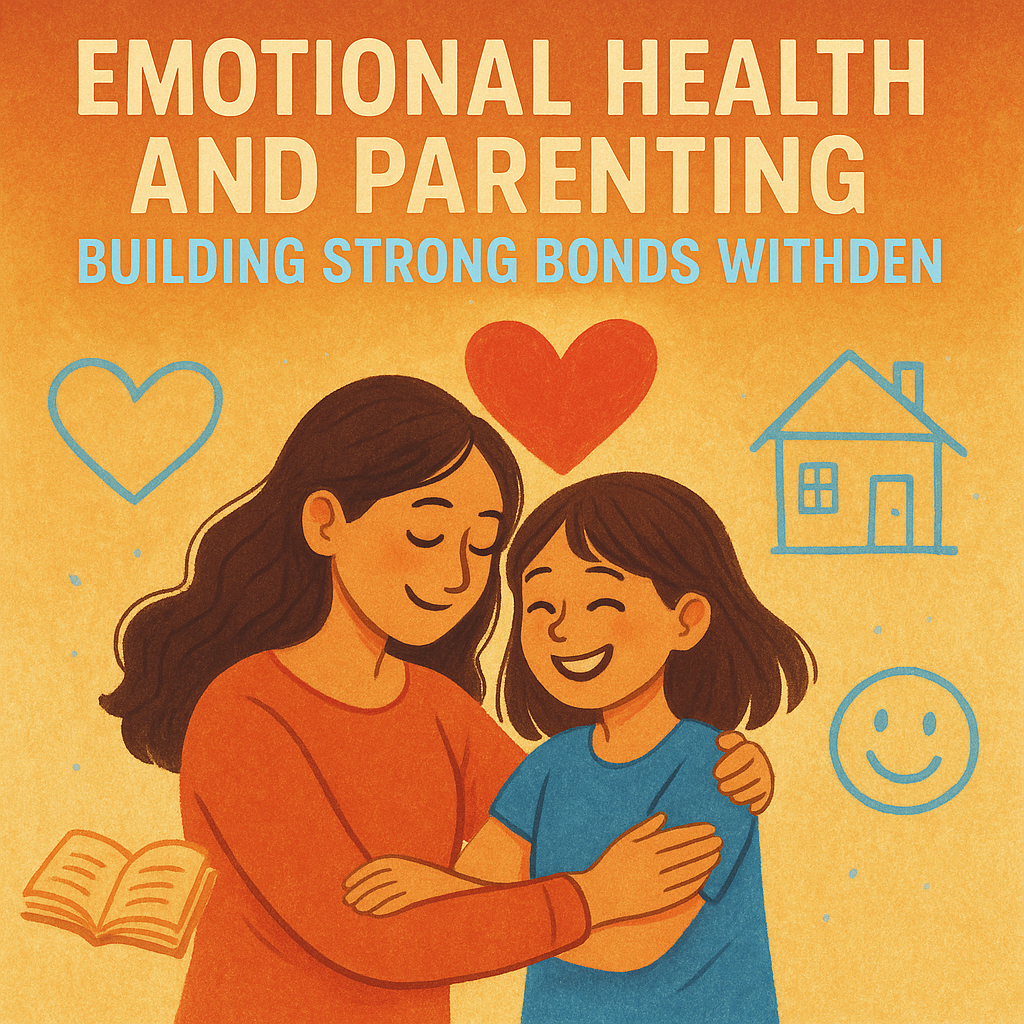Emotional Health and Parenting: Building Strong Bonds with Children

Emotional Health

Emotional Health and Parenting: Building Strong Bonds with Children Parenting has always been more than providing food, shelter, and education. In recent years, psychologists and child development experts have emphasized that a child’s emotional health is equally important as their physical well-being. Emotional health refers to the ability to understand, express, and manage emotions effectively. When parents nurture this aspect in their children, they not only build resilience but also strengthen lifelong bonds. Read More : 5G Signal vs. Wi-Fi 6: Which One Powers the Next Digital Era?, with five G Signal
The Foundation of Emotional Health in Parenting

Modern research in child psychology shows that children who grow up in emotionally supportive households demonstrate stronger social skills, higher academic performance, and better self-regulation. A 2024 study from the American Psychological Association revealed that early parent–child emotional connections significantly predict mental health outcomes in adolescence and adulthood. This finding underscores that emotional health is not a luxury in parenting—it is the foundation. Read More : AI Advancements: How Digital Brilliance Hub is Shaping the Future
Parents play a vital role in modeling emotional behavior. Children observe how their caregivers respond to stress, joy, anger, or disappointment. When parents openly discuss emotions and show healthy coping mechanisms, they provide a template for their children to navigate life’s challenges with confidence and empathy.
Emotional Health and Everyday Parenting Moments

Everyday interactions—bedtime stories, mealtime conversations, or even handling tantrums—become opportunities for emotional development. For instance, instead of dismissing a child’s sadness, acknowledging it with phrases like “I see you’re upset, let’s talk about it” validates their feelings. Such validation boosts emotional health by teaching children that their emotions matter. Read More : Best Smartphone 2024: A Comprehensive Guide to Cutting-Edge Mobile Tech
Routine also plays an important role. Consistent routines give children a sense of safety and predictability. When kids feel secure, they are more likely to explore their emotions openly. Studies highlight that children raised in emotionally consistent homes develop stronger problem-solving skills and fewer behavioral issues.
Communication as a Bridge to Connection

Open communication builds trust, and trust fosters emotional health. Parents who practice active listening—truly paying attention to what their child says without judgment—encourage children to express themselves without fear. This practice reduces stress and enhances mutual understanding.
Non-verbal communication is equally crucial. A gentle touch on the shoulder, warm eye contact, or a reassuring smile can convey empathy more powerfully than words. Research in neuroscience suggests that such positive interactions activate the brain’s “social engagement system,” which calms stress responses and nurtures emotional resilience. Read More : Best Smartphone Cameras in 2024: Which Devices Stand Out?
Emotional Health as a Sub Heading

Creating a parenting style that prioritizes emotional health requires intentional practices. One effective approach is emotion coaching, a technique developed by psychologist Dr. John Gottman. Emotion coaching involves recognizing emotions, labeling them, and guiding children through problem-solving. Parents who use this method help their children regulate emotions and build stronger self-awareness. Read More : Cutting-Edge New Technology Gadgets: What to Expect in 2024
Another practice is reflective parenting, where parents pause to consider the child’s perspective before reacting. This doesn’t mean permissiveness but rather empathy-driven guidance. Reflective parenting has been shown to reduce conflict and increase cooperation in families. Read More :Hypertension in the Youth: A New Challenge for Global Heart Health
The Role of Play in Strengthening Bonds

Play is more than entertainment; it’s a developmental necessity. Through play, children experiment with emotions, learn to manage frustration, and develop empathy. Whether it’s building blocks, role-playing, or outdoor adventures, shared playtime deepens the emotional bond between parent and child.
Experts from Harvard’s Center on the Developing Child emphasize that “serve and return” interactions—when a child expresses something and a parent responds in a meaningful way—are essential for brain development. These playful exchanges lay the groundwork for emotional health by fostering secure attachment and mutual trust.
Supporting Parents’ Own Emotional Health

Parenting can be overwhelming, and no parent can nurture their child’s emotional well-being without first caring for their own. Research consistently shows that parental stress, anxiety, and unresolved trauma directly affect children’s development. Parents who practice mindfulness, seek social support, or engage in self-care are better equipped to respond to their children with patience and empathy.
It is not about being perfect but about being present. Children benefit most from parents who can acknowledge mistakes, apologize when necessary, and demonstrate resilience. These actions show that emotional health is a journey, not a fixed state.
Building Bonds That Last

Strong emotional bonds don’t emerge overnight. They are cultivated through consistent love, empathy, and shared experiences. From celebrating small achievements to offering comfort during failures, each interaction reinforces the parent-child connection. Over time, these bonds become a protective factor that helps children face life’s inevitable ups and downs.
Recent studies on attachment theory affirm that securely attached children—those who feel emotionally connected to their parents—are less likely to struggle with anxiety or depression later in life. They also tend to build healthier relationships with peers and future partners.
Parenting for the Future
As society becomes more complex, equipping children with emotional intelligence is no longer optional. Technology, social pressures, and global uncertainty all pose challenges that require resilience and adaptability. By prioritizing emotional health in parenting today, parents prepare their children to thrive not only in academics and careers but also in relationships and personal fulfillment.





